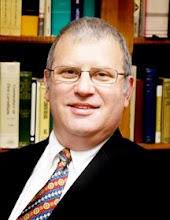Yesterday I mentioned some of the heresies the church has experienced during it's existence, some of which fuel what I believe to be false teaching today (I think Jehovah's Witnesses have roots in Arianism).
What is it that drives people to develop or follow a false teaching?
Is it pride and arrogance? Is it ignorance? A desire to be a people pleaser? (That last term comes from the sermon my pastor did yesterday).
What do you think motivates false teaching about the Trinity and what can be done about it?
How do we speak the truth with love (Ephesian 4:15) to win people to Christ without being prideful and arrogant ourseves, without being incompetent about it?

What is it that drives people to develop or follow a false teaching?
Is it pride and arrogance? Is it ignorance? A desire to be a people pleaser? (That last term comes from the sermon my pastor did yesterday).
What do you think motivates false teaching about the Trinity and what can be done about it?
How do we speak the truth with love (Ephesian 4:15) to win people to Christ without being prideful and arrogant ourseves, without being incompetent about it?












